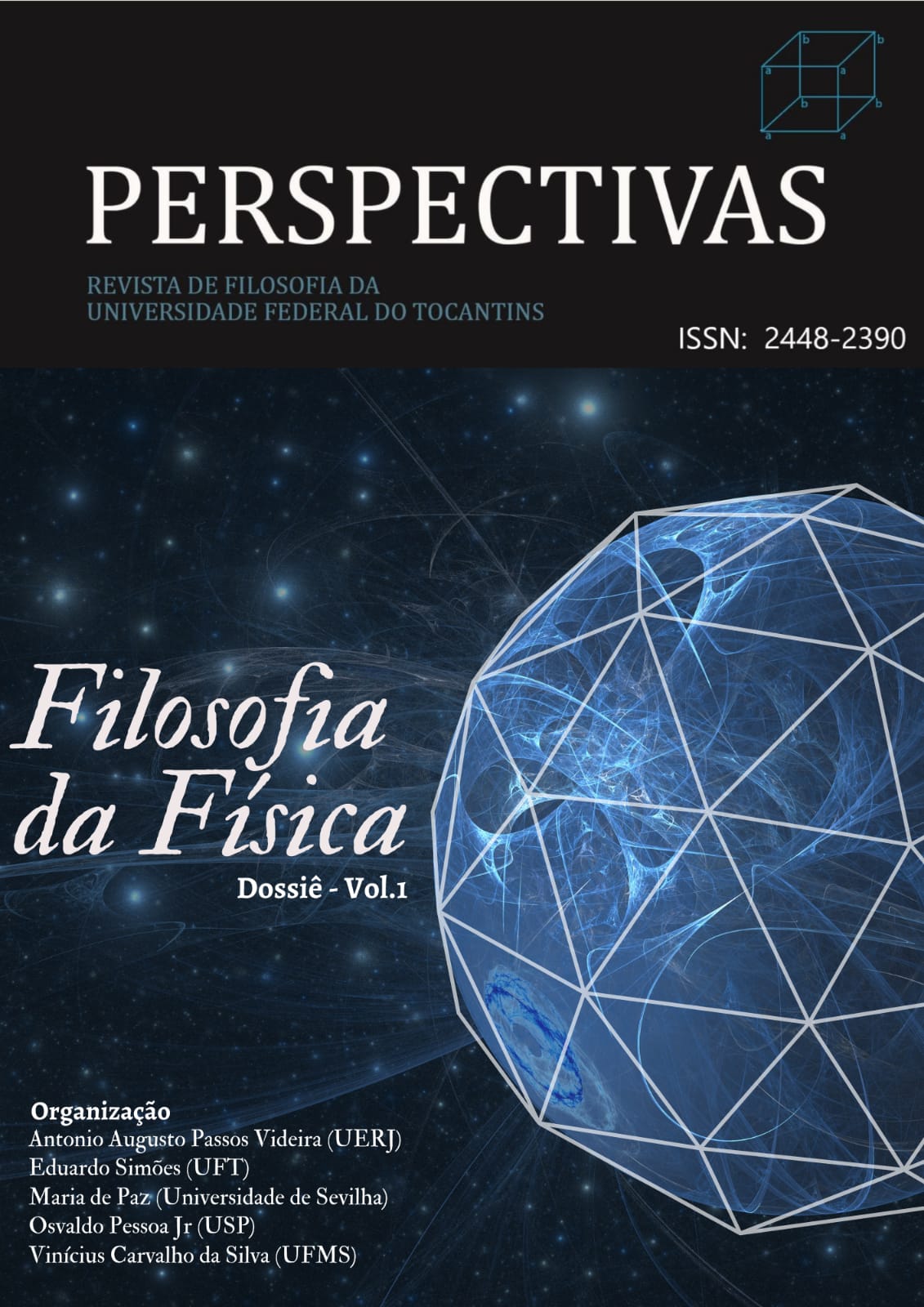Émilie du Châtelet en tiempos de Newtonianismo
Hacia un nuevo método
DOI:
https://doi.org/10.20873/rpv7n2-44Abstract
O século XVIII é considerado uma época em que o método de pesquisa newtoniano está bem estabelecido e o seu uso não é questionado, segundo autores como Kuhn. No entanto, como veremos, isso está longe da realidade, pois aqui propomos os seguintes dois objetivos: por um lado, observaremos como dentro dos próprios autores chamados newtonianos não há um uso uniforme do método newtoniano e que alguns deles até o modificam em suas obras onde expõem a doutrina de Newton. Por outro lado, exporemos o método de Émilie du Châtelet, que, tendo lido Newton e esses pensadores, rejeita a metodologia que eles propõem e se prepara para elaborar o que pode ser considerado um precedente do método hipotético-dedutivo utilizado hoje. Em última análise, o objetivo deste estudo é lançar luz sobre a situação do newtonianismo no século XVIII e mostrar a obra de du Châtelet como uma ponte entre duas épocas em relação à metodologia.
References
Brading, K. (2019). Émilie du Châtelet and The foundations of physical science, NY, Routledge focus.
Brunet, P. (1926). Les physiciens hollandais et la méthode expérimentale en France au XVIIIè siècle, Paris, Librairie Scientifique Albert Blanchard.
Detlefsen, K. "Émilie du Châtelet", The Stanford Encyclopedia of Philosophy (Winter 2018 Edition), Edward N. Zalta (ed.), URL = https://plato.stanford.edu/archives/win2018/entries/emilie-du-chatelet/
de Paz, M. (2021) “La matemática en los Principia: ¿era Newton un platónico?”, en Secco, G., Sautter, F. T., Esquisabel, O y Sanz, W. De Mathematicae atque Philosophicae Elegantia, Notas Festivas para Abel Lassalle Casanave, London, College Publications. ISBN: 978-1-84890-382-1.
Du Châtelet, É. (1740). Institutions de Physique, Paris, Prault fils.
Ducheyne, S. (2012). The Main Business of Natural Philosophy: Isaac Newton’s Natural-Philosophical Meth-odology, Dordrecht, Springer.
Ducheyne, S. (2017). “‘s Gravesande and Van Musschenbroek’s Appropiation of Newton’s Methodological Ideas” en Boran, E. A., & Feingold, M. (Eds.). (2017). Reading Newton in early modern Europe. BRILL.
‘s Gravesande, W. J. (MDCCXLVII. [1747]. Introductio ad Philosophiam, Metaphysicam et Logicam. Venetiis, Typis Jo. Baptiste Pasquali.
‘s Gravesande, W. J. (MDCCXLII. [1742]). Physices elementa mathematica esperimentis confirmata sive In-troductio ad philosophiam newtonianam. Editio tertia duplo auctior, Leidae: apud Johannem Ar-noldum Langerak, Johannem et Hermannum Verbeek, 1742.
Harper, W. (2011). Isaac Newton’s Scientific Method: Turning data into Evidence about Gravity and Cosmol-ogy, Oxford, Oxford University Press.
Keill, J. (MDCCXLV. [1745]). An introduction to natural philosophy: or, philosophical lectures read in the University of Oxford, Anno Dom. 1700. To which are added, the demonstrations of Monsieur Huy-gens's theorems, concerning the centrifugal force and circular motion. By John Keill M. D. Savilian Professor of Astronomy. F. R. S. Translated from the last edition of the Latin. 4th ed. printed [by Henry Woodfall] for M. Senex, W. Innys, T. Longman and T. Shewell.
Musschenbroek, P. V. (MDCCXLIV. [1744]). The elements of natural philosophy. Chiefly intended for the use of students in universities. By Peter van Musschenbroek, M.D. Professor of Mathematicks and Phi-losophy in the University of Leyden. Translated from the Latin by John Colson, M. A. and F. R. S. Lu-casian Professor of Mathematicks in the University of Cambridge. ... Vol. 1. printed for J. Nourse, at the Lamb without Temple-Bar.
Newton, I. (1959-77). The Correspondence of Isaac Newton. Turnbull, H.W. (ed., vols. I-III), Scott, J.F. (ed., vol. IV), Hall, A.R. and Tilling, L. (ed., vols. V-VII). Cambridge: Cambridge University Press. (Cor-resp.) Nordtvedt, K. (1968a).
Newton, I. (1704) [1979]. The Opticks, or a treatise of reflections, refractions, inflections and colours of light. New York: Dover.
Newton, I. (1687) [1999]. The Principia, mathematical principles of natural philosophy, a new translation by I. Bernard Cohen and Anne Whitman, assisted by Julia Budenz, preceded by a guide to New-ton’s Principia by I. Bernard Cohen. Berkeley, CA: University of California Press.
Pemberton, H. (MDCCXXVIII. [1728]). A view of Sir Isaac Newton's philosophy. By Dr. Pemberton. Re-printed by and for John Hyde in Dame-Street, and for John Smith and William Bruce on the Blind-Key, Booksellers.
Shapiro, A. E. (2004). Newton’s “Experimental Philosophy” en Early Science and Medicine, 9(3), 185–217.
Downloads
Published
Versions
- 2023-01-23 (2)
- 2023-01-08 (1)
How to Cite
Issue
Section
License
Copyright (c) 2023 Daniel Nieto

This work is licensed under a Creative Commons Attribution 4.0 International License.
The Magazine is under the Creative Commons Attribution 4.0 International Public License (CC BY 4.0), according to which:
1) The authors retain the copyright and grant the journal the right of first publication, with the work simultaneously licensed under the Creative Commons Attribution which allows the sharing of articles published with the recognition of authorship and initial publication in this journal.
2) Authors are authorized to enter into additional contracts separately for distribution of the version of the work published in this journal, as long as there is recognition of authorship and initial publication in Perspectivas.
3) Authors are authorized and encouraged to disseminate published texts with proper references to the journal and its authors.





















